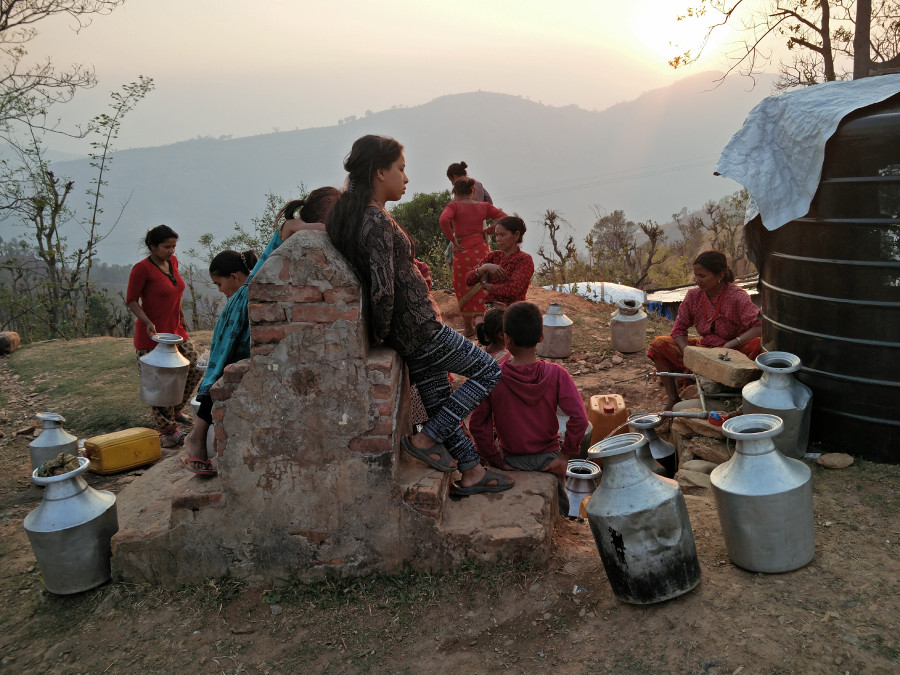Editorial
No country for rural women
Nepal must commit to uplifting the status of those at the bottom of society.
Today, October 15, marks International Day of Rural Women. This sounds a bit odd, doesn't it? If March 8 is already being celebrated as International Women's Day, what is the need to have a separate day for rural women? It is not unusual for any of us to have this question in our minds when we hear of this. And that is exactly where the answer to our question lies: The concerns of rural women have historically been sidelined, rendering them voiceless and invisible across the world. The problem is especially stark in countries in the global south that lack social, economic and physical infrastructures to raise the status of rural women to be at par with that of other groups.
The statement issued by the United Nations for this year's Day of Rural Women has pointed out the disadvantage rural women face, especially this year in the wake of the Covid-19 pandemic, as 'they are less likely to have access to quality health services, essential medicines, and vaccines'. The statement couldn't be clearer when it says there is a need to adopt measures to alleviate the care burden women face and redistribute it between women and men, and between families and public/commercial services, especially in the most marginalised villages. Recognising the structural barriers and discriminatory social norms that continue to hinder women's decision-making power and political participation in rural areas, the UN International Day of Rural Women this year focuses on 'building rural women’s resilience in the wake of COVID-19', to create awareness of these women’s struggles, their needs, and their critical and key role in society.
The day of rural women has a special significance for Nepal, rural women lag far behind their urban counterparts in the Human Development Index and the Gender Inequality Index, among others. Reproductive health and mental health of rural women remains a taboo subject even today. Research has shown that the emotional-psychological well-being of rural women remains neglected. Women in rural areas fail to seek maternity healthcare, or even if they do, they do so pretty late for several reasons that include lack of transport, distance to health facilities, the women and family members not considering maternity healthcare a serious issue, and others. Lack of skilled birth attendants during delivery at home also affects the health of rural women, increasing maternal and neonatal morbidity.
The high rate of uterine prolapse, at almost 10 percent, remains a major public health concern in Nepal. The burden is high among rural women, as their access to healthcare is limited. Lack of access to formal education, child marriage and early motherhood continue to limit rural women's access to quality of living. In addition, lack of access to formal employment, mobility and security continue to impede the growth of rural women in Nepal. Add to that the systemic oppression rural women belonging to 'low-castes' face in countries like Nepal, and the situation of rural women remains pretty depressing. Rural women, thus, face multiple disadvantages as compared to the urban population.
As a society that has done little work towards uplifting the status of rural women, Nepal has a lot of commitments to make today, beginning with getting rid of the parochial notion that women's problems are particular to women alone. Rather, they have to do with each one of us. And so we must strive to solve those problems not just for the sake of the women but for everyone's sake.




 18.12°C Kathmandu
18.12°C Kathmandu














